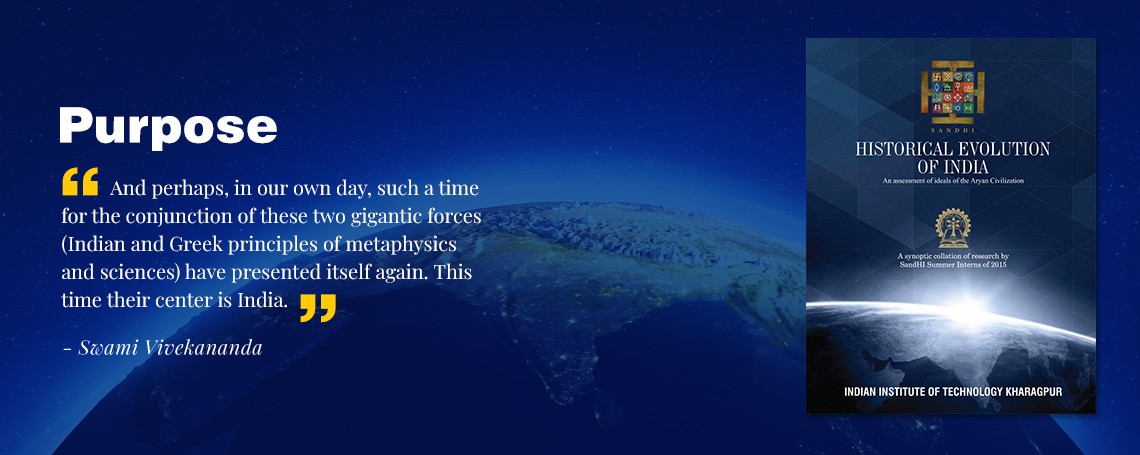
The purpose of the website is to forward a chain of researched links and evidences which reasonably trace and activate the whole scheme, the complete framework of human life, progress and evolution. To best explain the evolution of the framework, two excerpts are quoted, namely, first, Hindu and Greek and secondly, the Problem of Modern India and its solution, from the ‘Complete Works of Swami Vivekananda’.
The two excerpts epitomizes the backbone of the diaspora of only a part of the predominant Spiritual Indian civilization westbound, to Milesian Anatolia, Thrace and finally to Olympian Greece, in search of exploring ways and means and drifting towards the other side of human development, the material order.
The tempo of diaspora and the pattern of dissemination had taken places in four phases, which are earmarked in the end of the text. It shows, how a wave of civilization that moved from the heart of Asia through Europe to form the modern American civilization, and now it has crossed the Pacific, re-entering Asia, seeking a full renewal of the next circuit and the new story of human civilization (see diagram below).

Three mountains stand as typical of progress — the Himalayas of Indo-Aryan, Sinai of Hebrew, and Olympus of Greek civilization.

When the Aryans reached India, they found the climate so hot that they could not work incessantly, so they began to think; thus they became introspective and developed religion. They discovered that there was no limit to the power of mind; they therefore sought to master that; and through it they learnt that there was something infinite coiled up in the frame we call man, which was seeking to become kinetic. To evolve this became their chief aim.
Another branch of the Aryans went into the smaller and more picturesque country of Greece, where the climate and natural conditions were more favorable; so their activity turned outwards, and they developed the external arts and outward liberty.
The Greek sought political liberty. The Hindu has always sought spiritual liberty. Both are one - sided. The Indian cares not enough for national protection or patriotism, he will defend only his religion; while with the Greek and in Europe (where the Greek civilisation finds its continuation) the country comes first.
To care only for spiritual liberty and not for social liberty is a defect, but the opposite is a still greater defect. Liberty of both soul and body is to be striven for.
The ancient history of India is full of descriptions of the gigantic energies and their multifarious workings, the boundless spirit, the combination of indomitable action and reaction of the various forces, and, above all, the profound thoughtfulness of a godly race. If the word history is understood to mean merely narratives of kings and emperors, and pictures of society —
In a small country lying in the eastern corner of the Mediterranean Sea, beautiful and adorned by nature, and garlanded by well-formed and beautiful-looking islands, lived a race of men who were few in number, but of a very charming aspect, perfectly formed, and strong in muscles and sinews, light of body, yet possessing steadiness and perseverance, and who were unrivalled for the creation of all earthly beauties, as well as endowed with extraordinary practicality and intellect. The whole of Europe nowadays is, in every respect, the disciple of ancient Greece, and her proper inheritor; so much so that a wise man of England had said, “Whatever nature has not created, that is the creation of the Greek mind.”
These two gigantic rivers (Aryans and Yavanas), issuing from far-away and different mountains (India and Greece), occasionally come in contact with each other, and whenever such confluence takes place, a tremendous intellectual or spiritual tide, rising in human societies, greatly expands the range of civilization and confirms the bond of universal brotherhood among men.